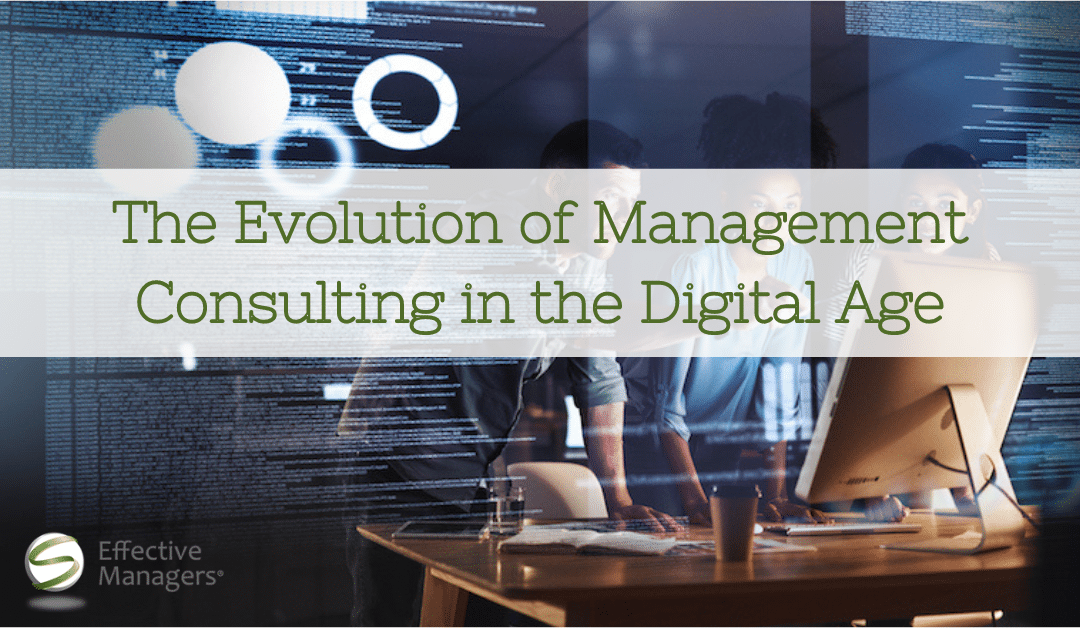The Evolution of Management Consulting in the Digital Age
Exploring How Digital Transformation Is Reshaping Management Consulting Practices
Management consulting has always been a dynamic field, adapting to changes in business practices, economic conditions, and technological advancements. The digital age, marked by rapid technological innovation, has brought about significant transformations in this sector. This blog explores how digital transformation is reshaping management consulting practices, offering both challenges and opportunities.
The Rise of Digital Technologies
The onset of digital technologies like artificial intelligence (AI), big data analytics, and cloud computing has drastically changed how businesses operate. For management consultants, this means adapting to new tools and methodologies to stay relevant. Consultants now leverage AI for predictive analytics, use big data for deeper insights, and rely on cloud-based tools for improved collaboration and efficiency.
Changing Client Expectations
Digital transformation has not only changed the tools and methods consultants use but also the expectations of their clients. Businesses now seek consultants who can guide them through digital transformation initiatives. This shift has prompted consultants to expand their expertise beyond traditional business strategy and operations to include digital strategies, cybersecurity, and data management.
The Emergence of Remote Consulting
The digital age has enabled remote consulting to become more feasible and effective. With advanced communication tools and project management software, consultants can offer their services to clients around the globe without the need for physical presence. This trend has increased the market reach for consulting firms while reducing costs and time spent on travel.
Data-Driven Decision Making
In the digital era, management consulting has become more data-driven. Consultants are increasingly using data analytics to provide insights and recommendations. This approach allows for more objective, evidence-based decision-making, setting aside biases and assumptions that may have influenced traditional consulting methods.
The Challenge of Cybersecurity
With the increased reliance on digital tools, cybersecurity has emerged as a critical concern for management consultants. Protecting client data and ensuring the security of communication channels are now essential components of the consulting process. This has led to the integration of cybersecurity expertise into consulting practices.
Agility and Continuous Learning
The fast-paced nature of technological advancements means that management consultants must be agile and continuously upskill themselves. Keeping abreast of the latest technologies, trends, and best practices is vital for providing relevant and effective advice to clients.
Collaboration and Co-Creation
Digital transformation has facilitated greater collaboration between consultants and clients. Tools like collaborative platforms enable real-time sharing of ideas and feedback, leading to a more inclusive and co-creative approach to problem-solving.
Sustainability and Ethics in the Digital Age
As digital transformation progresses, management consultants are increasingly addressing issues of sustainability and ethics. This involves guiding businesses to adopt sustainable practices through digital means and ensuring ethical considerations are integrated into digital strategies.
Conclusion
The evolution of management consulting in the digital age is a testament to the field’s adaptability and resilience. By embracing digital technologies, adapting to changing client expectations, and prioritizing continuous learning, management consultants are well-equipped to navigate the challenges and opportunities presented by this new era. As the landscape continues to evolve, the role of consultants will undoubtedly expand and transform, continuing to provide critical guidance to businesses navigating the complexities of the digital world.
If you would like to learn more about being a professional management consultant, explore our ISO 20700 training program here. ISI 20700, the first ever services standard published by ISO, sets the baseline for the profession of management consulting.
Click here to email Dwight to explore how you can improve yours and your team’s performance.





